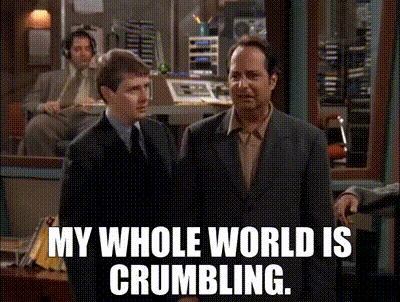The leaderless drift is simply disastrous for Europe

18 December 2024 – – There was an opinion piece in tonight’s Guardian by Jörg Lau, an international correspondent for the German weekly Die Zeit. His position is that “Germany is in a very sorry state, and all our leaders can do is yell at each other”. During the vote-of-confidence that Olaf Scholz (the current German chancellor) lost (which was deliberate) it seemed all he and challengers could do was hurl insults at each other in what are usually the “hallowed halls” of the Reichstag.
And Lau noted this was important, and a sorry state, because it shows what Germany (and Europe) have become.
Lau’s point was that normally, such a vote is just a technicality required by the German constitution. It has been used by social democrats and conservatives alike several times in the past to get to snap elections.
But this time was different, he said:
During the debate, Scholz scolded his erstwhile coalition partners, the Free Democrats: they lacked the “moral maturity” required for public office. The conservative opposition leader and the probable next chancellor, Friedrich Merz, called the Green party’s Robert Habeck “the face of the economic crisis” and Scholz “a global embarrassment” for Germany. Scholz responded later in a TV interview by belittling Merz as “Fritz, who is known for talking nonsense”.
Personal slurs of this type used to be out of bounds in Germany. But now German democracy is under unprecedented strain from inside and out. The loss of decorum in Monday’s debate is proof of it. The most powerful country on the continent might be headed for a test more stark than anything since reunification more than three decades ago.
Germany is in a severe economic crisis caused by high energy prices and bad management decisions. Once mighty car manufacturers such as Volkswagen are planning to lay off thousands of people. The pride of German engineering might be facing an extinction level event once the full impact of Chinese EV imports hits the European market. Should the German car industry be hurt by competition from China – so far, the most important export market for our goods – it would be a historic reversal with deep political and psychological effects.
True, Germany has changed course radically from postwar pacifism after being caught flat-footed by the war in Ukraine. But now, while Russia is slowly gaining ground in eastern Ukraine, those on the extreme right and left wings in Germany lead a backlash against supporting the Ukrainian war effort. The far-right AfD wants to terminate weapons deliveries and grant victory to Putin. They are polling at 18%, in second place and ahead of Scholz’s SPD.
The new far-left BSW is equally pro-Russian, anti-Ukrainian, anti-Nato, anti-EU and anti-immigrant. It is uncertain if Bündnis Sahra Wagenknecht (the alliance is named after its founder, Sahra Wagenknecht) can clear the 5% threshold required for seats in the Bundestag, but it has already altered the public discourse.
With BSW, there is a new left-nationalist flavour on the menu of German party politics. Interestingly, both the rightwing and leftwing extremes are set to profit from a second Trump term. They share his sentiments against “elites”, immigrants, free trade, “globalists”, mainstream media and institutions such as Nato.
The next German elections had been scheduled for September 2025. The snap poll after the collapse of Scholz’s coalition last month means that Germany faces Trump’s return to the White House without a government in place. Depending on the outcome, and subsequent negotiations, it might take until May or June before a new coalition is formed in Berlin.
This is an unmitigated disaster considering the equally fragile situation in France, the second most important economy on the continent. Should the new Bayrou government fail, France could head into a full-blown constitutional crisis that would destroy Emmanual Macron’s presidency once and for all. And this would certainly increase the chances of Marine Le Pen fulfilling her dream of becoming France’s first female president.
With Berlin and Paris going around in circles, Europe drifts leaderless while the future of the continent hangs in the balance.

Almost everywhere you look, there are grim tidings for center-left parties in the West.
• In a month, the Democrats will find themselves shunted out of the U.S. executive branch, in opposition in both chambers of the legislature and stuck with a judicial apparatus led by a right-wing majority Supreme Court.
• In Britain, the honeymoon for the recently elected Labour government lasted just a matter of weeks, as its approval tanked amid political missteps and factional infighting.
• In France, President Emmanuel Macron is grappling with a dysfunctional parliament where his liberal and centrist allies are beholden to the whims of an ascendant far-right faction.
• In Germany, Scholz famously cast the Russian invasion of Ukraine as a historic “turning point” for his nation and Europe as a whole. But he is seen by critics as failing to grapple with the new realities of the moment that “the real winds of change are blowing in from the East – Russia”.
• Meanwhile, Canadian Prime Minister Justin Trudeau saw his top lieutenant, finance minister Chrystia Freeland, quit the cabinet. Freeland, a former high-profile journalist turned stalwart Trudeau ally for the better part of a decade, pulled few punches in her letter to the prime minister, in which she seemed to warn him about not preparing adequately for the looming threat of tariffs imposed on Canadian exports by the incoming U.S. administration of President-elect Donald Trump. The embattled prime minister, elected in 2015, has seen his popularity nosedive over the past year amid economic torpor, a nationwide housing shortage and voter fatigue. If federal elections were held today, polls project, his Liberal Party would be wiped out.
In Canada and Germany, Trump’s return casts a shadow. His browbeating populist style and right-wing nationalism has been echoed by opponents of Trudeau’s minority government in Ottawa and the far-right Alternative for Germany, which polls show may emerge the second-biggest party in parliament after Germany’s next federal elections — a result that would have been unthinkable just a few years ago. As pointed out by Kelsey Baker, a political analyst for the Washington Post:
Though their contexts are different, Scholz and Trudeau are politically tethered to a liberal establishment in the West that is in pronounced retreat. The values that undergirded it, including an embrace of the virtues of globalization, multiculturalism and environmentalism, are under siege to varying extents across Western democracies, and increasingly seen as the aloof dogma of an entrenched elite that hasn’t adequately reckoned with the concerns of ordinary citizens.
It’s very unclear if their right-wing opponents have the right solutions, but voting publics across the West are eager for change and more open to anti-system politics. Trump’s bulldozing approach toward his northern neighbor, analysts suggested, is aimed at upsetting an apple cart that was already tilting over. Jonathan Rose, head of the political science department at Queen’s University in Canada:
Trump is a disrupter, and has less of an ideological agenda than he does to disrupt, dismantle and upset a stable political system. And that’s what he’s doing here. The lesson for other countries is to manage negotiations with a bully carefully.
Germany’s troubles transcend any one faction. Scholz came to power as part of 3-party coalition with the Greens and the neoliberal Free Democrats. Internal disagreements over economic and financial policy cratered the coalition, and all 3 parties are expected to fare poorly in February. As in many countries in Europe, more ordinary German voters are drifting to the far right and, to a lesser extent, the far left.
For Germany’s political establishment, the challenge may be structural, and a symptom of a broader economic crisis that has undermined competitiveness, growth, and tax revenue in Germany, which has high labor and energy costs and a high reliance on exports, especially to China. That over reliance on the Chinese market has become a weakness, as China’s economy has grown and evolved to start competing with German industry and its major exporters.
The uncertainty and frailty wracking Europe’s biggest economy follows a moment in Trump’s first term when Berlin, under then-Chancellor Angela Merkel, styled itself a bulwark of the liberal order. The confidence of the Merkel era has faded into self-doubt, with Germans in angst about their country’s sluggish growth and new vulnerabilities to open war on the continent.
And that is what is scaring the wits out of many in Europe. The collapse of Germany’s government and the potential collapse of the French government come at the most awkward and most fragile moment for the world. It’s especially unnerving because, whether they like it or not, the French and the Germans have become a vital symbol of stability for the West – a model of what “the U.S.-led community of nations” can achieve.
Now? A primal fear. That model of a “U.S.-led Western community” is dead, and we are moving into the unknown. We are now in the formative years of a new period whose name and character we don’t yet know.
In politics, as in relationships, beginnings matter. But it will be a new world order.